The Cigarettes interview with Stephen Taylor & Rob Smith
In 1978 a band came out of Lincoln in the UK, they gained a good degree of local success, but on a major scale they were largely ignored. While they did receive airplay on the John Peel radio show in the UK, as well as recording some Peel Sessions for the program the band The Cigarettes only ever released an EP and a single while they were still active.
The Cigarettes were a trio of musicians consisting of Rob Smith on guitar/vocals/piano, Stephen Taylor on bass/vocals and Adam Palmer on drums.
The Cigarettes formed in 1978. You were from Lincoln, UK and you actually had quite a local success?
Stephen Taylor: We were a “local band” in the most accurate definition of the phrase. We were teenagers at the time. Adam the drummer was still at school, I was at the local Art College and still living at home and Rob was at that time trying to figure out how he could earn a living without working. I can only remember doing two shows outside of Lincoln and one of them was for John Peel from which we got the offer of a recording session for his national radio show. John Peel was highly regarded as a champion of whatever new music was emerging throughout his long career. He had been playing our record on his show, and he asked us to play at one of his Roadshow gigs at which we got the offer of a session.
As far as local success goes, Lincoln is a small city; having our record being played on The Peel show and then recording the Peel Session made us slightly bigger fish in a tiny pond. Probably by virtue of our puffed out chests and swollen heads.
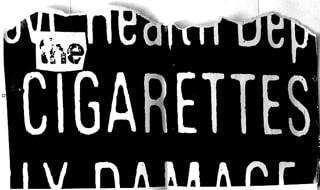
How did you come together? Were you in any other bands?
Stephen: The Cigarettes were our first band. Rob, the lead singer and guitarist and I were in the same class throughout our entire school life. From 4 years old to 16, we were friends for most of that time. Adam turned up when I was getting rid of a nasty sounding drum kit. I fancied myself as a drummer and got an extremely cheap and hopeless drum kit. Within 5 minutes it was clear that I was a drummer only in my head. A friend of mine told me that he had a mate that was looking for a drum kit, so Adam showed up, he was 15 years old and I either gave him the kit or sold it for a pint of beer. I was so pleased to get it out of my room.
“I do remember the day after the Sex Pistols had been on national television for the first time”
How would you describe your music? Mod, Punk…?
Stephen: We were a Punk band. It was the Sex Pistols that sparked us, and a lot of our friends to form bands. Prior to the Sex Pistols at that time there was nothing. I liked the Beatles and the Stones and Rob was listening to David Bowie and Bob Dylan. However great their records were, none of these artists were on the television or releasing regular singles that were on the radio. An album would come out when you were 14 and when the next release came out you were 16. It seemed like an age. Then mercifully The Sex Pistols turned up. I do remember the day after the Sex Pistols had been on national television for the first time, Rob and I had both seen it and were discussing them whilst we were fishing. On that morning we recognised them as being hilarious but it took a couple of weeks before they sounded like the greatest living band. If nothing else The Sex Pistols took us off the riverbanks and put us into dark smelly clubs, which was a step forward.
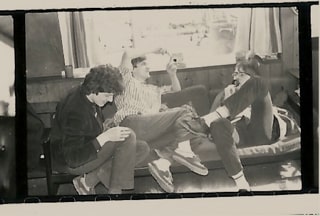
Rob Smith: Somewhere in between I think. That’s if there is such a thing as being somewhere in between Mod and Punk?! I think, if anything, I was more punk, Stephen was more mod and Adam was more jazz rock. I do find it interesting that some people seem to be concerned as to what category to put music into. I always thought if I liked it, it would be good (unless it is Country and Western music!). When punk first came out, the idea seemed to be to just get yourself a band together and play what you want, and wear what you want. And then it all became more formalised, and categorised. We were going to the local charity shops (Oxfam) and picking up clothes for a few pence. Later, we used to see people who had gone down to London and bought expensive “punk clothing”. I never got that.
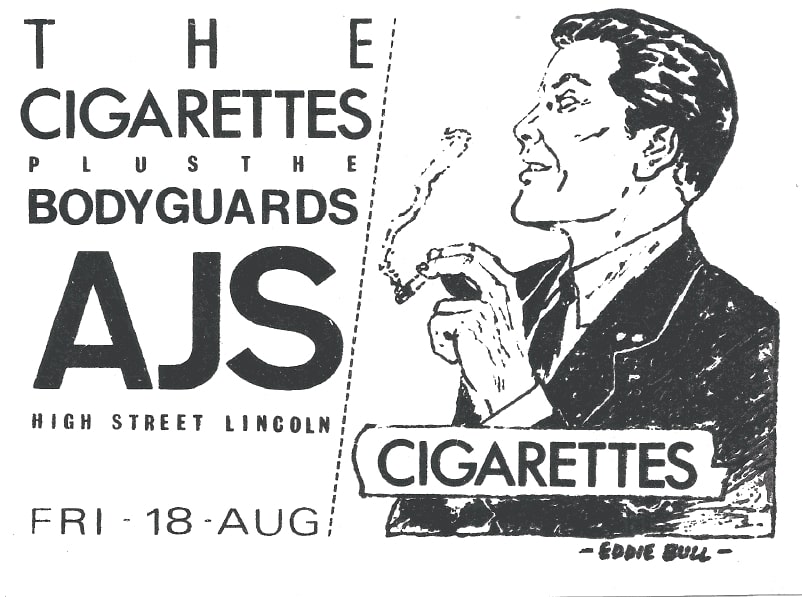
What influenced you?
Stephen: The immediate influences on the band were the Pistols, The Clash, The Jam and the Buzzcocks, along with the hundreds of independent records that appeared on the scene almost instantly. Rob and I went on a tour selling the merchandise for the Buzzcocks. Joy Division as the support act. I think that the day to day exposure to these two bands further influenced Rob, who was the main songwriter. I just chipped in a couple of songs here and there.
Rob: It was an interesting time because you could go to an independent record shop and there would be so many singles from bands you just hadn’t heard of. Some good, some indifferent, and some downright rubbish. So some influences came from bands that I can’t even remember the name of now. But the more obvious influences were bands like the Sex Pistols, The Buzzcocks, the Vibrators, The Damned, the Jam, The Adverts. And from the pre-punk era, the Beatles, David Bowie, Bob Dylan.
Tell me about the local scene in Lincoln?
Stephen: In 1977 very rudimentary skills on instruments could sound thrilling. Punk enabled anyone that fancied being in a group to form one and have a go. We took advantage of this along with many others. Suddenly you would see oddly dressed, scruffy, spotty boys walking the streets carrying guitars and small synth keyboards. Dozens of bands were born overnight, many with their own records available. The Bodyguards, Sinking Ships and Stig and the Laceraters are three that we formed from our immediate friends. This phenomenon was taking place throughout all the towns and cities in Britain. It was a unique and exciting time to be in a group.
I was involved with a distribution company that bought records from local bands from around the country and sold them by mail order in the New Musical Express magazine as well as to shops. Amongst the many records we bought were the first releases from the Human League and Def Leppard, both Sheffield bands and both would have number 1albums in America within a few years. It was an astonishing time looking back at it.
You received some airplay on the John Peel radio show in the UK and you also did some recordings for it.
Stephen: We got offered a prestigious John Peel Session and the first date for the session we couldn’t make so the next time he played the ‘They’re Back Again’ single on his show he said over the air that we had turned down a session because one of us was cleaning our car. This was untrue, but made us appear wittier than we were and slightly arrogant which was no bad thing. Unbelievably as I write this I am at the BBC Maida Vale Studios in London where that session took place. I just popped into Studio 4, which is the studio we recorded in. The studio wasn’t in use. I planned to photograph it but I couldn’t find the light switch. There are a lot of switches and knobs in a recording studio. We recorded 4 songs and mixed them in a day. ‘Valium World’ was one that I remember. It was broadcast more than once and people seemed to like it.
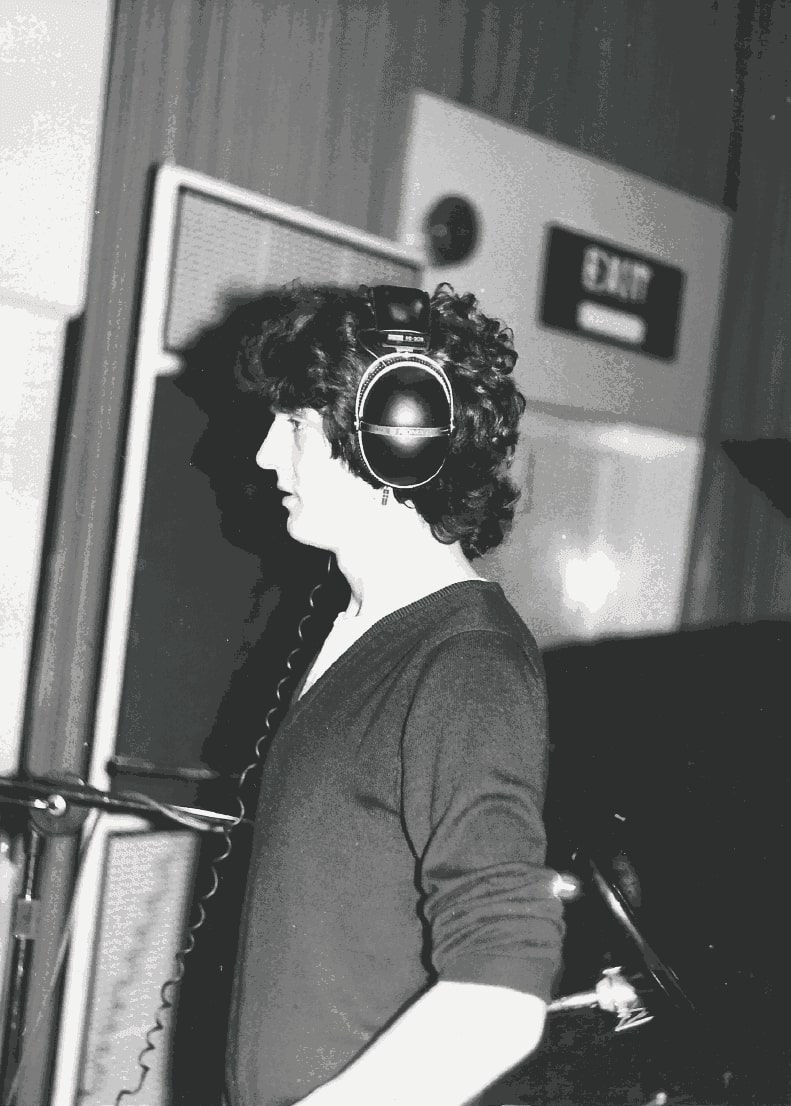
Rob: John Peel played the first single (EP) quite a number of times and we were asked to go and do a gig for his roadshow. At the gig he asked us to come and do one of his sessions, which we did in 1980. We recorded four songs for the session at the BBC Maida Vale studios. ‘Can’t Sleep At Night’, ‘Valium World’, ‘It’s The Only Way to Live (Die)’, ‘Frivolous Disguises’. I remember the day before going down from the Peel session, Stephen’s bass had developed a problem and we had to drive 35 miles to the music shop to get it fixed. While we were waiting for the repair, about 6 inches of snow came down and as we drove home we got into an accident and the car was spinning round. I remember thinking, damn, we’re just about to die just as we’re about to take the first step to being famous. Needless to say we didn’t die, then again we never became really famous.
You released only one single and EP. I would like it if you could share a story about these recordings?
Stephen: We heard that there was a recording studio just out of town which seemed unbelievable to us. We never knew that it existed. We went to have a look at it and it looked like a proper recording studio with a drum booth and padded walls, it was very 70’s, and tiny. It had a 4 track tape machine and we recorded 6 songs, all finished in a couple of days. Out of this came the first ep, ‘They’re Back Again’, ‘I’ve Forgotten Your Number’, ‘All We Want Is Your Money’. ‘Miranda’ and ‘Media Mania’ were amongst the songs. It was all live performances, and the recordings captured what we were about and the times we were in very well I think.
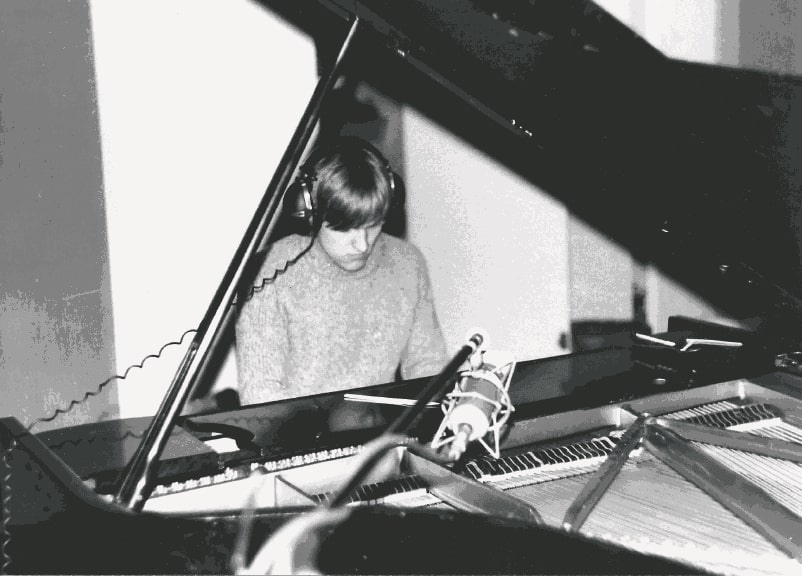
We went in a couple of more times and spent a little longer, not much, on each song, but perhaps the results were less successful. I do think that those first recordings benefited from our naivety and definitely the excitement of being in a recording studio for the first time. They still sound fresh to me.
What were songs mostly about?
Stephen: Whatever young men forming their first opinions of the world in which they find themselves find relevant. A bit of politics, money, the media, prescription drugs, girlfriends. The usual. I don’t remember much sex working it’s way into the songs though. Some early songs were purely for the fun of being a little shocking. ‘Damage Your Health’ was an early one that was done for amusement. An American Punk band did cover that song. I got no credit though. It was a straight cover for us too.
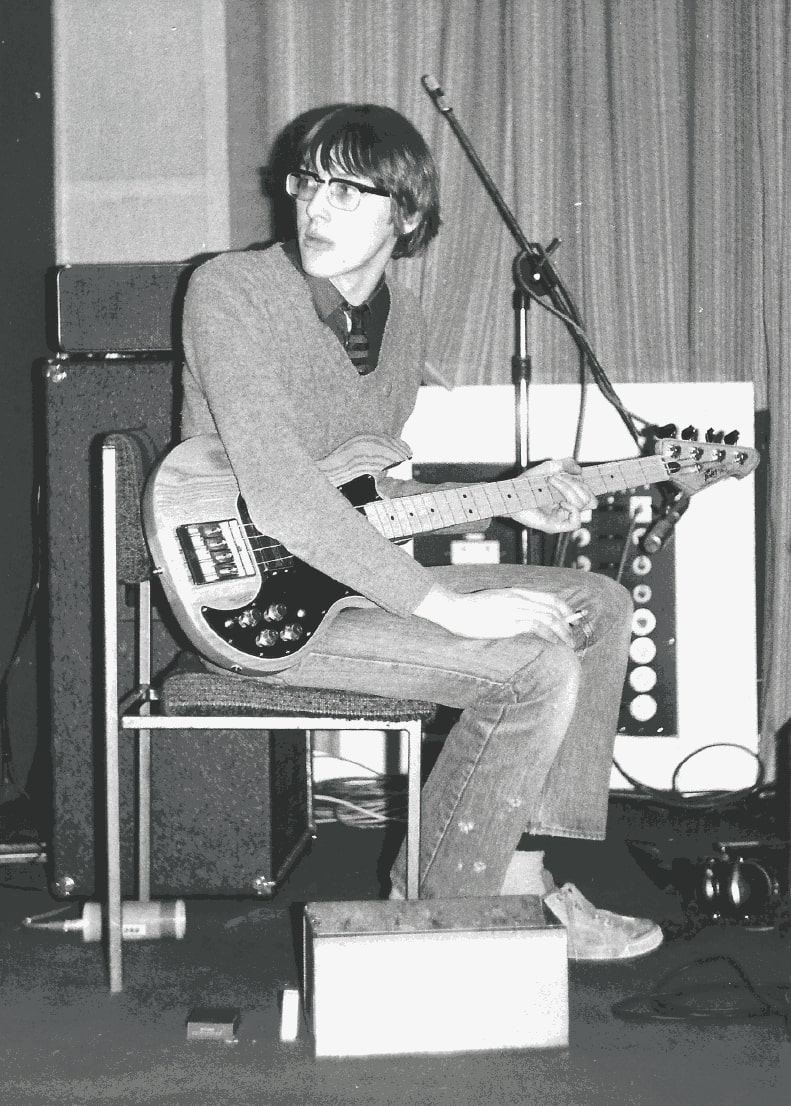
Rob: Some songs of personal stuff, some political stuff and some just fun. ‘They’re Back Again Here They Come’ was about the rise of right-wing movements in Britain at that time. ‘All They Want Is Your Money’, was about the music industry, and people writing songs about change, the kids, about making money out of rebellion. I want people to understand that we were just the same.
‘Will Damage Your Health’ is the name of a compilation that features most of your unreleased stuff. It’s released on “Detour Records”. There is so much great stuff on it.
Stephen: I think that that record consists of everything that we ever recorded, including the Peel Session, one of our first rehearsals and some stuff that Rob did after I’d gone. So the very beginning in the rehearsal room is captured with ‘Re-arrange Your Brain’ The couple of singles and their flip sides. Some songs were included on a local compilation album called ‘East’. The riff to one of those, ‘Frivolous Disguises’, still pops into my head from time to time. The Peel session is on there and a handful that never found their way onto a record. It’s everything that we did in the 3 or 4 recording sessions that we had in what was a two year life span.
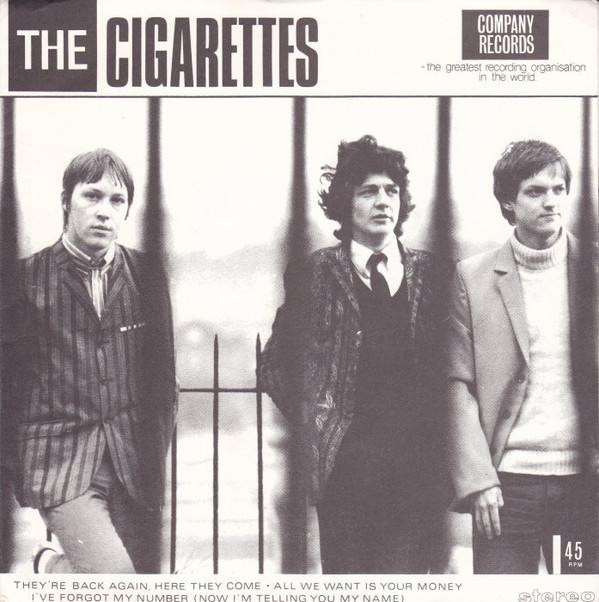
Rob: Some stuff comes from a seven track cassette tape that we put out before we released the first single. Other stuff came from recordings that we did later on. Some of the tracks had been recorded for a third single which never got put out. And some was for the “East” album, which was a collection of tracks from local bands. We had a good relationship with the local recording studio and would often get a little bit of free time to record.
There is one song I really love called ‘You Were So Young’. What is it about?
Rob: In reality, I guess this song should have been called ‘Yesterday’s News’. I was reading a newspaper one day and some stories stuck in my mind. Later in the day I was talking to some people about those stories but nobody knew what I was talking about. It turned out I had been reading last week’s newspaper, hence yesterday’s news. It interested me how things that have been so tragic a week before have now been forgotten. It’s also about media representations and how people become fascinated with people in the media. It wasn’t as prevalent as is now – fascination with celebrities has increased even more. It seems to be one of my favourite themes for songs, ‘Media Mania’, ‘Rhythm And Curves’ and ‘Frivolous Disguises’ have elements of these ideas within them. Perhaps I’m obsessed with people who are obsessed with the media.
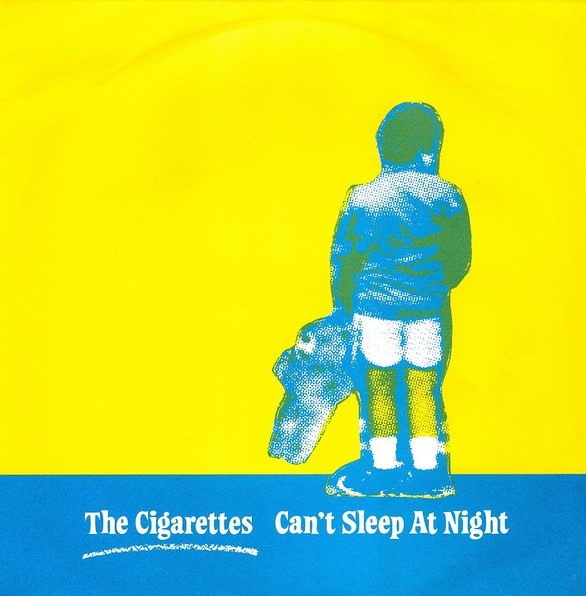
Were you politically active as a punk band or was it just fun?
Stephen: There are some political references. The seventies had a lot of political strife, Britain was crumbling a little and of course the Cold War was still going on. I saw the ‘Rude Boy’ film that features the Clash a few years ago and was shocked at how old fashioned the seventies were. Some of the vehicles on the road looked like they were from the fifties. All over that film you can witness the state that Britain was in so it’s not surprising that some political references feature but it was balanced with the trivial.
Where did you do shows?
Stephen: We performed In the local Colleges and Pubs. There were a couple of grotty nightclubs in the town too where we played. We did the John Peel Roadshow gig in Northampton which was immortalized on video tape and a show at a Pub in Sheffield to an audience of so few we could have introduced ourselves.
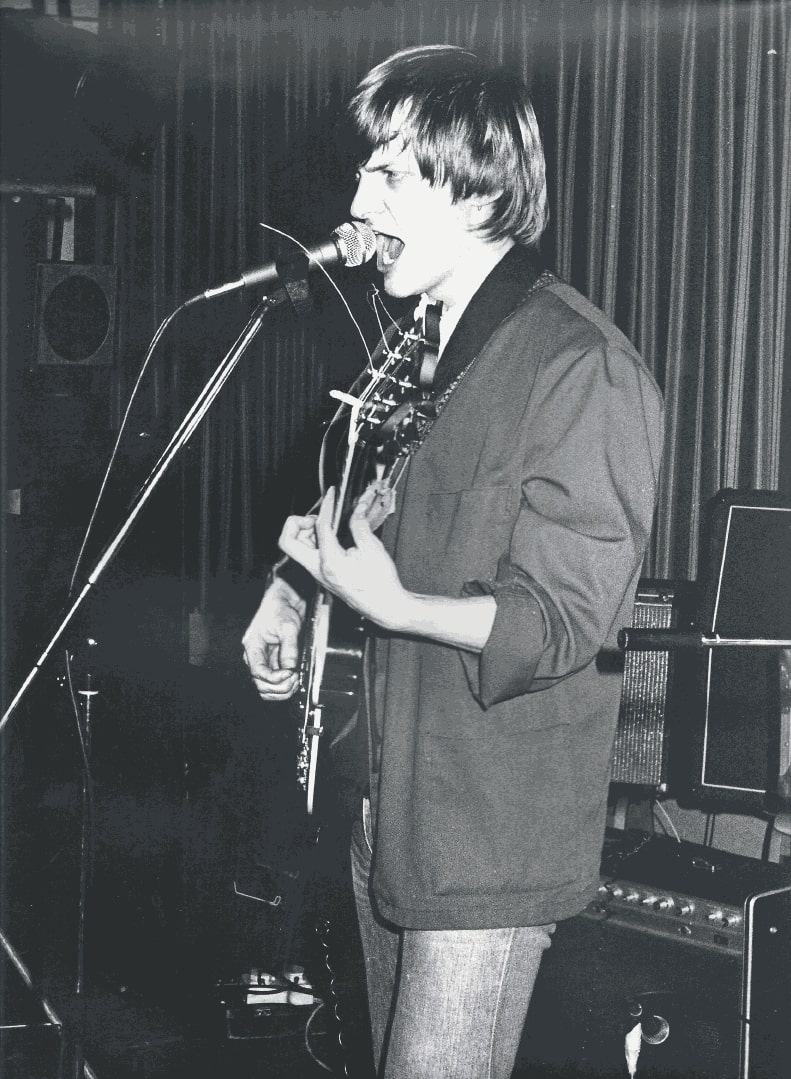
Why did you disband?
Stephen: We had to earn a living. As I mentioned earlier we were a “local band”. We’d had a couple of years but now it was time to get a job. Adam had finished school and was going off to College. I had had a job for a couple of years before going to the Art College but I now wanted to be part of what was going on in the music business, if I could, so a move to London beckoned. We didn’t have a Manager or an Agent, we did everything ourselves. We put out our own records from our own homes, and got our own gigs. We were a bunch of kids and the time had come to leave home.
Any regrets?
Stephen: The exact opposite. I found the mid-seventies to be very tedious. I really wanted to be in a band but the fashion was for overblown music that required huge drum kits, keyboards, stacks of amps and expensive guitars. You needed money and a beard and I didn’t have the former and was incapable of the latter. Being in a band in the seventies wasn’t possible for a teenager until Punk. Then our time came and it was probably the best time of all. The DIY mentality of that time enabled us to put out our own records. Having your own record to put on your own turntable was the dream, and we were able to achieve that and it was a great thrill.
What happened after you disbanded and what occupies your life these days?
Stephen: I, along with partners, had an Independent Record Label and distribution company and out of that we released Soft Cells ‘Tainted Love’. This was while I was still in Lincoln. I then moved to London and during the 80’s I co-managed bands including The Screaming Blue Messiahs and for the last 20 years I’ve been Tour Manager to Jools Holland and his Rhythm and Blues Orchestra. The Orchestra tours constantly in the UK and around the world. They record albums and perform on TV and Radio so music and musicians are still my world.
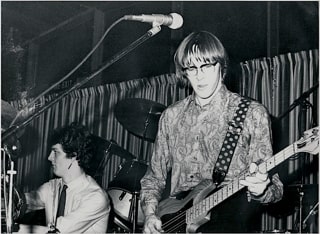
Thanks for your time. Anything else you would like to share? Perhaps a message for It’s Psychedelic Baby readers?
Stephen: I was shocked when the request came through to do this interview and still can’t believe that the It’s Psychedelic Baby! readers have heard a single note of The Cigarettes. I’ve enjoyed revisiting what now feels like a lost world. The recordings are a little time capsule for me and having listened back to some of the songs on YouTube I have to say that they do retain a freshness that can be enjoyed today and capture their time remarkably well. I’m now a fan and I hope that you may become one too.
Rob: I would just like to say thanks to anybody who is still listening to the tracks. I went on YouTube a few years ago and was amazed to find that people had posted our tracks, and was pleasantly surprised to find how many hits they had. I never thought the songs would last as they seemed to be of a particular time. It’s really nice to know that people are still listening to them. I’ve even listened to them myself and some of them aren’t bad!
Klemen Breznikar

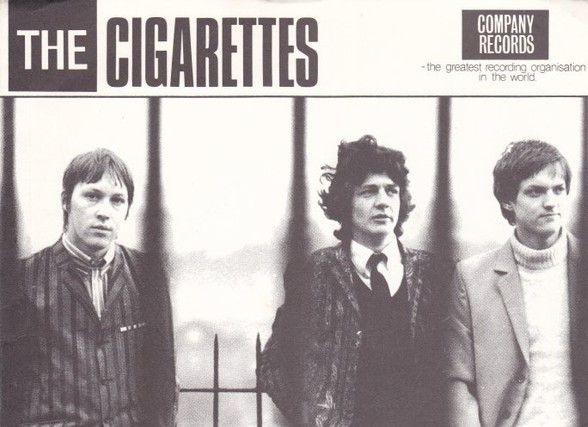
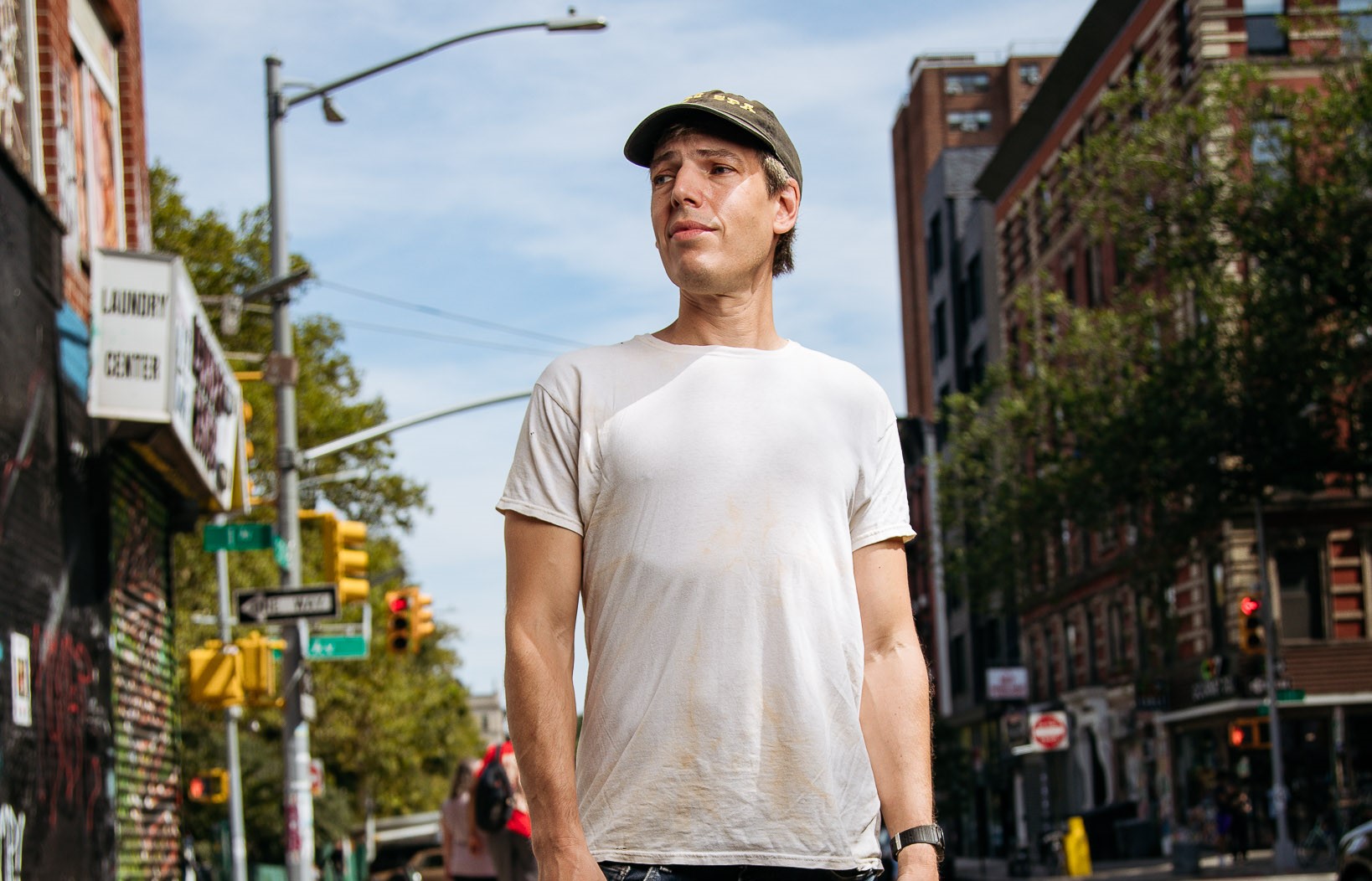
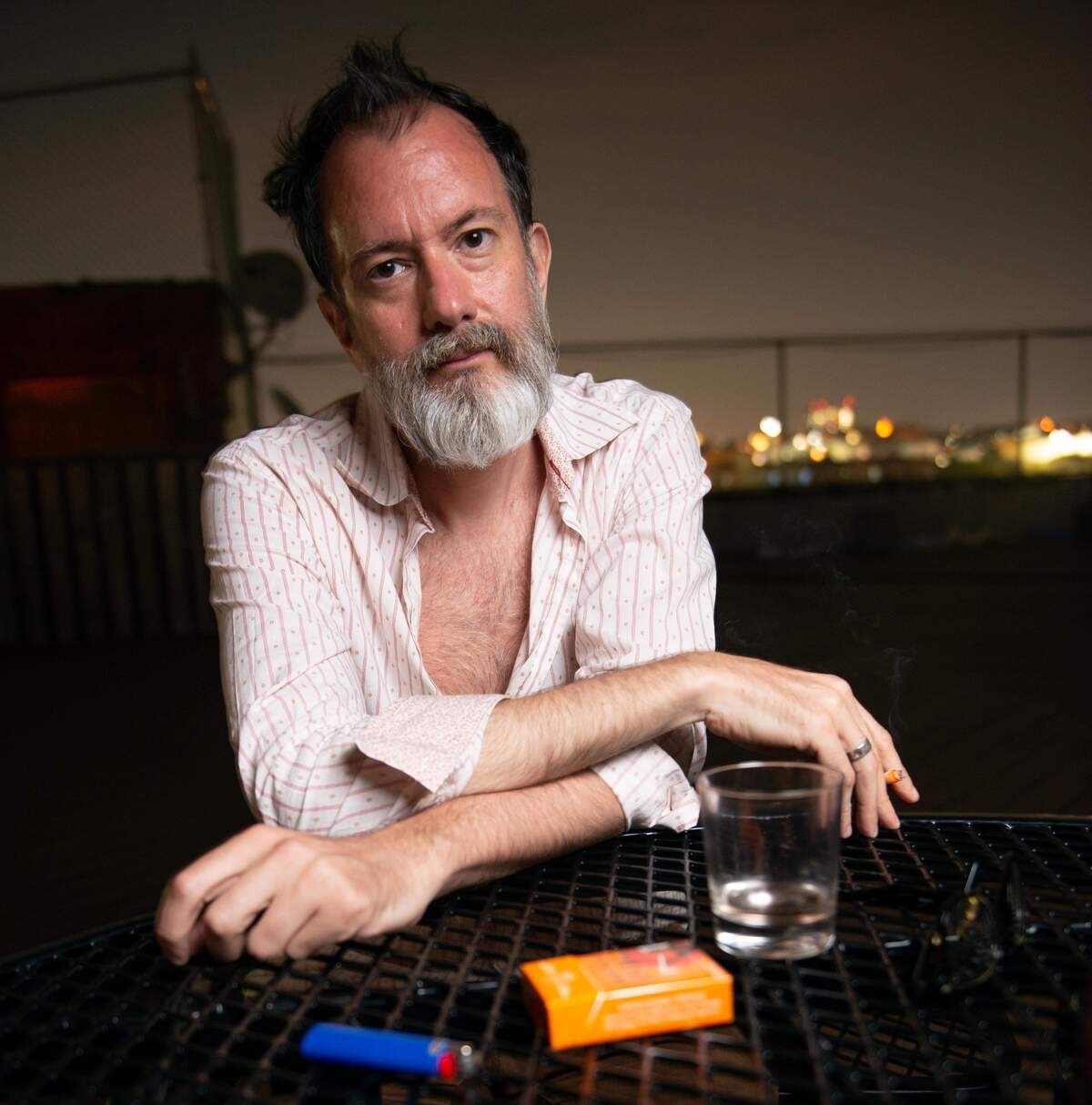

I was a kid that lived close to Steve and Rob…went to the same school…the year above..and learned to play guitar and write songs with Rob. I remember Stephen very well as another local lad. I was never a gig attending fan of the Cigarettes but remain a fan non-the-less. I still have the vinyl.I'm a professional musician and often reference some circa 70's bands in the lead up to one of my songs.I had transposed "The Sinking Ships" 50 miles up the road to Leicester and stand corrected! Loved the article…thanks
Soulman O'Gaia (Joe Gray)
Creator of Freedom Songs
http://www.soulmanogaia.com
Cracking article, thank you. I discovered the Cigarettes through the ‘This is Mod’ compilation series. ‘They’re Back Again, Here They Come’ is an all time favourite, and some of the lyrics bookend my poetry pamphlet Revival-on-Sea out via Backroom Poetry.
Anyway, interesting stuff and the excellent songs live on.